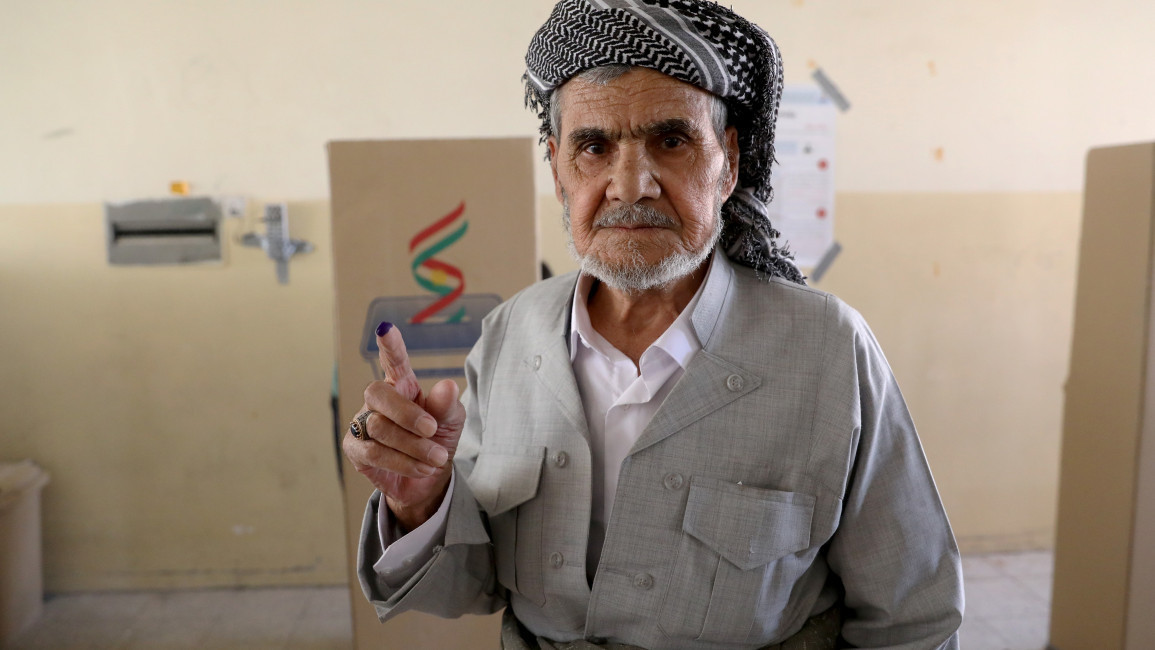After KDP boycott, Iraqi Kurdistan elections may be delayed: sources
The upcoming parliamentary elections in the Iraqi Kurdistan region are expected to be postponed again due to a boycott by the ruling Kurdistan Democratic Party (KDP), three Kurdish sources told The New Arab on Thursday.
Iraq's Federal Supreme Court ruled on 31 May 2023 against extending the term of the Kurdistan region's parliament as contrary to the country's constitution, declaring the Kurdish legislature terminated and ordering the Iraqi Independent High Electoral Commission (IHEC) to supervise fresh general elections in the region.
After the elections were delayed several times and under pressure from Iraq's top court, Nechirvan Barzani, president of the semi-autonomous Kurdistan region in northern Iraq, picked 10 June to hold parliamentary elections.
Three well-informed sources told TNA on condition of anonymity that the KDP currently is engaged with the Special Representative of the United Nations Secretary-General for Iraq (UNAMI), Jeanine Hennis-Plasschaert, as well as the United States Ambassador to Iraq, Alina L. Romanowski, to arrange a delay to the elections until further notice.
On 23 February, Iraq's Supreme Federal Court ruled against the Kurdistan region parliament's eleven-seat minority quota system as "unconstitutional." The court's decision effectively dissolved the eleven quota seats designated for Turkmen, Christians and Armenian minorities in the region, which had been in the legislature since 1992. The court also made critical amendments to the region's electoral law, dividing the region into four constituents.
These developments prompted the KDP's political bureau to announce on 18 March a boycott of the electoral process.
The KDP criticised the Iraqi Federal Supreme Court for constitutional violations, stating that it overstepped its authority by amending the regional election law, eliminating quota seats for minority communities and endorsing an Iraqi judicial body to enforce election results.
The party emphasised that unless its concerns were addressed, it would refrain from participating in the elections and would not recognise or enforce the vote results.
One source indicated that Nechirvan Barzani will announce a delay to the elections after consulting with IHEC and UNAMI.
"If the elections are to be held without the KDP's participation, it means the Kurdistan region will be officially split into two different administrations, which might lead to the end of the region's constitutional status as a federal region within Iraq," the source said. "Neither the US nor the UNAMI wants this; consequently, they are open to delaying the elections."
The source stressed that the elections might be postponed until late 2025 because the IHEC's legal authorisation will end in July, and there is no guarantee that the Iraqi political sides will agree on electing a new electoral body in the Iraqi parliament.
Jumana Al-Ghalay, IHEC's spokesperson, said to TNA, "IHEC continues with its preparations to conduct the Kurdistan region's parliamentary elections on the scheduled date, 10 June, according to international standards."
The spokesperson added, "The decision regarding the renewal of the IHEC's commissioner council is left to the discretion of the Iraqi parliament."



